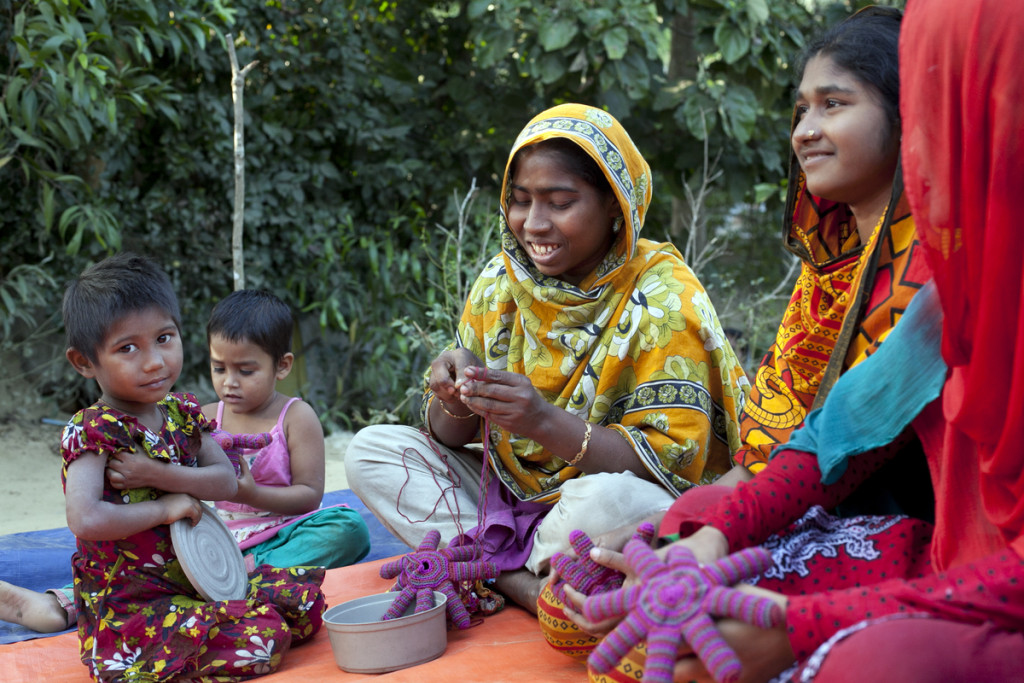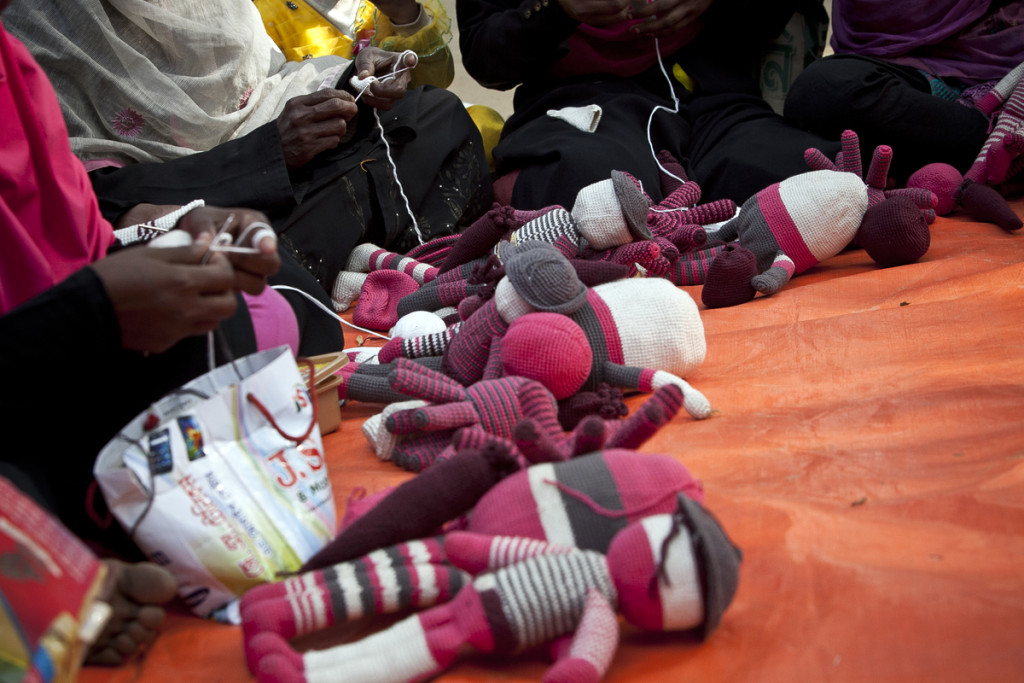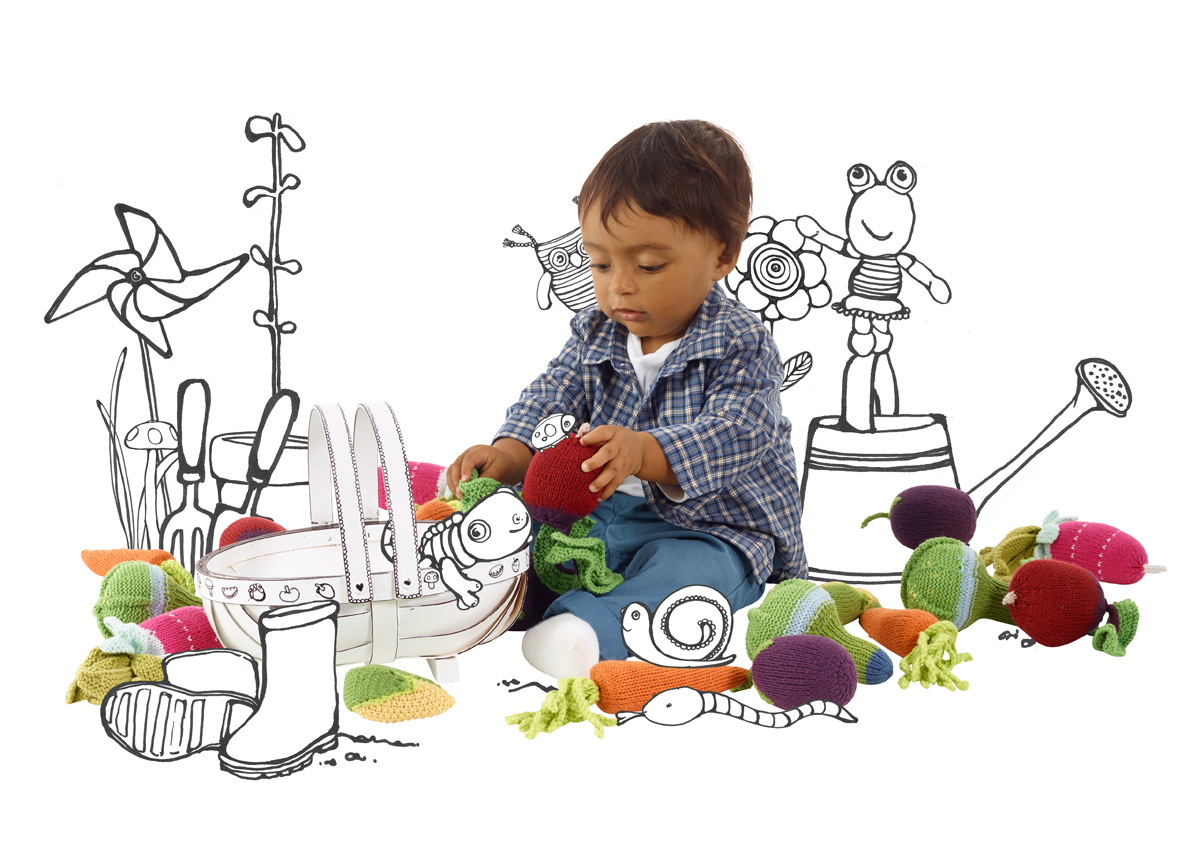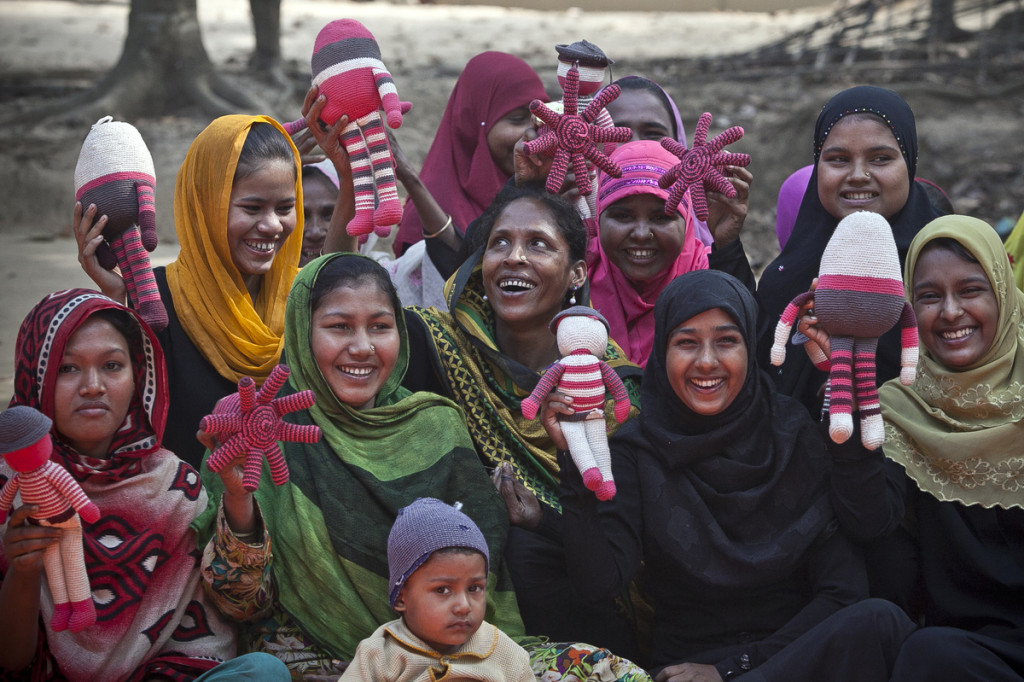28th April 2015
Training artisans
One of the most common questions I’m asked, is about how we train the artisans and whether they already have the skill and so many questions around this subject. So I thought I’d show you some pictures of training going on at the moment and tell you about how we do it.
Often we are asked to go to an area and set up a new rural production centre, either by the people of that village, or by a donor who wants to partner with us, or by field officers working on other projects who have seen our work. However when we get to the area we always start with a baseline survey. We need to know basic details about the women in that area and the socio economic situation. We need to ensure that we can get about 100 women successfully working into a centre to make it commercially viable for us – so sometimes that means setting up a centre in between 2 villages to get a bigger catchment and sometimes it means having 2 centres in a village where there is more demand.
Then we send a trainer. All the HBPS trainers are women who have worked their way up the ladder. All are women from the same or very similar socio economic background as the women they will be training. The trainer, or 2 in many cases, will then go to the village and will live with the women for about 6-8 weeks or until training of all the batches is complete and the women have moved on to production work.

Image: Learning to make crochet toys – the children come along too until we are able to set up the preschool facility
The women spend about 3 hours a day learning and it takes between 2 and 4 weeks to get a women to a point where she is able to start with basic production work, depending on the speed with which she learns. We have a syllabus for both knitting and crochet and then once the basics of the syllabus are complete the women will learn a small range of products that they will start production work on. Not all women learn all the products we make. We make more than 300 skus! So centres specialise in about a dozen or so products. Enough for there to be variety and make the work interesting but not so many that its unmanageable. Whilst they train to make the products they use different coloured yarn from our production yarn – but the same quality. This way these products can never find themselves to market but the women are learning as if they were doing production work and it can be realistic training for them.

Image: production designs made in training yarn
The women take enormous pride in the toys they learn to make and this is really important because this is the basis of getting good quality in large volume. For most of them, making toys is a completely new activity and they often find the items funny. This is good. It really helps to break down barriers and for a very real community spirit to come together in the centres where the women are able to work and laugh and chat all at the same time.
Image: the women are proud of the toys they have learnt to make in the training sessions and are now ready for production work and to start to earn money.



